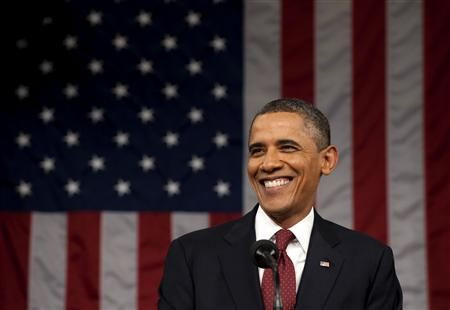State Of The Union 2014: The Issues Technology And Science Sectors Will Be Watching For

Technology and science might not take center stage in President Barack Obama’s 2014 State of the Union address on Tuesday, but they’ll likely have very strong supporting roles. Here are a few of the key issues that the science and technology sector will be watching for:
Immigration reform: Technology companies who want to hire more highly-skilled foreign engineers will probably take heart from the president’s speech on Tuesday.
President Obama is expected to call for immigration reform this year – as he did in last year’s State of the Union. In 2013, the U.S. Senate approved a plan for undocumented immigrants to attain citizenship through a 13-year path, but it was rejected by the House of Representatives. This year, though, the political prospects for an immigration bill might be brighter – Obama wants to pass a major piece of domestic legislation, and Republican leaders want to burnish the party’s image among non-white voters.
Patent reform: Last November, the White House hosted a meeting on the U.S. patent system attended by tech companies and advocates, focused specifically on combating “patent trolls” that profit primarily from infringement lawsuits. The House has already passed a bill that would tighten the pleading standards for patent suits and make it easier to challenge the validity of patents; Obama might seize the opportunity to call on the Senate to follow suit.
“It’s something that [Obama] can hang his hat on,” Internet Association CEO Michael Beckerman told Politico. “The bill that passed the House aligned very closely with his legislative principles. It’s an issue that helps jobs, the economy, all those great things, the internet sector, restaurants, everybody.”
Climate change: The National Oceanic and Atmospheric Administration dubbed 2013 the fourth-warmest year since extensive global surface temperature records began in 1880. But while climate change is discussed more and more in the media, addressing it remains a relatively low priority for the public at large (it came in second-to-last in importance on the laundry list of issues offered to voters in a Pew survey conducted earlier in January, pulling just ahead of global trade issues).
The president signaled his prioritization of climate change last year when he introduced new emissions standards for coal-fired power plants. Plus, a “senior administration official” told Talking Points Memo earlier this month that “a very high priority” was to “use his executive authority to curb climate change and spur the use of clean energy.” Environmentalists and science advocacy groups like the Union of Concerned Scientists will be cheered if the president finds space in his speech to hammer the issue home.
“There are a few moments each year when the president can traditionally command our attention when it comes to important issues,” UCS energy and climate director Angela Anderson wrote. “Taking climate seriously — and talking about it publicly — can go a long way toward helping the nation understand the facts and the risks that come with a warming world. Eventually Congress will come around. But for now, the president’s continued public commitment to climate action can help plant seeds that state and local leaders can cultivate to strengthen our resilience and spur innovation and investment in a clean energy solutions.”
Science education: The presidential guests at the State of the Union can also signal some planks of the platform that that will be laid out on Tuesday. Spurring children's interests in science has long been a favorite topic for Obama, and one of First Lady Michelle Obama’s guests at the president’s speech will be Joey Hudy, a 16-year-old from Arizona who unveiled an “extreme marshmallow cannon” at the 2012 White House science fair:
Meet @Joey_Hudy, one of the First Lady's State of the Union guests: http://t.co/3pQOrSfIEi #DontBeBoredMakeSomething, pic.twitter.com/u37PQ8aY3t
— FLOTUS (@FLOTUS) January 27, 2014Hudy is a self-described “maker” and currently the youngest intern at Intel Corp.
But lines in speeches can only go so far. The Los Angeles Times points out that ideas in the state of the union are rarely realized within a year, let alone before the end of a presidency. Many of the high-profile proposals from the 2013 State of the Union -- minimum wage increases, gun control, and even a bipartisan-approved idea for preschool expansion -- have yet to get a thorough hearing in Congress.
© Copyright IBTimes 2025. All rights reserved.





















